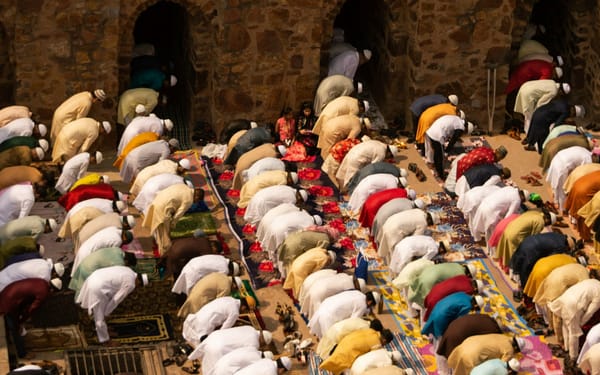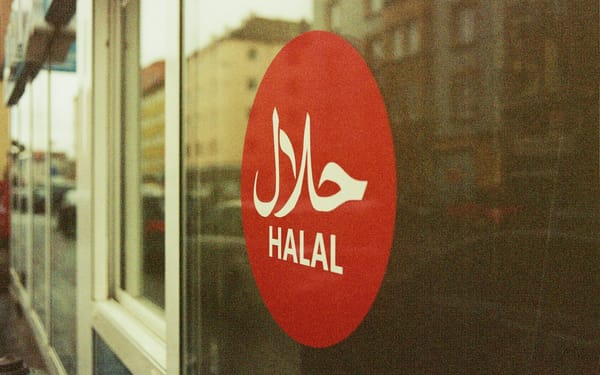What is Islamic Finance? Islamic Finance for Beginners

Key Takeaways
- Islamic financing refers to banking, lending, capital financing, saving, and investing activities that comply with Shariah or Islamic law.
- Under Shariah Finance, Muslims must only invest in business ventures or stocks of companies that abstain from practices forbidden in Islam.
- Interest also known as Riba is haram in Islam. It is not permissible for Muslims to participate in business activities, investing, or borrowing that involves interest.
What is Islamic Finance?
Islamic finance refers to money management that is in accordance with Sharia, or Islamic law. It also refers to the types of investments, debt, savings, and banking that are permissible under Shariah.
Islam is a complete code of life in which Shariah outlines how a Muslim should act in money-related matters. Islamic laws on lending are against interest because it deems it exploitative. A relationship in which the borrower must pay interest payments to the lender at all costs, only favors the lender.
Although Islamic laws originated in the 7th century, the concept of Islamic finance is relatively new. The financial services industry started introducing halal investment products such as halal banking, halal loans and mortgages, Shariah-compliant ETFs, and other instruments. This is to include the Muslim community that is hesitant to participate in financial markets because many of the popular and lucrative financial vehicles were not permissible under Shariah.
As part of its core tenants, Islamic finance promotes the idea of inclusion and accessibility across financial services and opportunity.
The Principles of Islamic Finance
The major principles that form the basis of Islamic finance are:
- Only legitimate and asset-based investments are permissible for building wealth. Using currency to make more currency is not permissible under Sharia law (commonly referred to as Forex Trading). However, one may convert one currency to another for practical purposes (i.e. conduct business dealings across country borders, planning to trip to visit another country, etc.)
- The financial investment must also take into consideration the greater good and should not be ethically or socially harmful.
- Risk in a financial undertaking must be shared. All parties involved in a financial activity should share profit and loss.
- Taking of interest (known as Riba) is haram. Therefore, Muslims must not invest in corporations that profit from interest as it would also make the income they receive impure. To keep things practical scholars have introduced the 5% rule: as long as the income sourced through riba is less than 5%, you may be able to invest in the investment opportunity as long as it passes all other sharia compliance tests.
- Haram activities (such as alcohol, pork, gambling, etc.) to build wealth must be avoided. There are clear cut industries and sectors that we as Muslims should steer away from, however, there are also activities that are subject to scholarly debate (i.e. Media and Finance). Make sure to do your due diligence to better assess what is permissible and what is not.
Islamic Finance Investing Vehicles
Muslims can invest in businesses or investments that are deemed sharia compliant which are typically investments that do not involve interest. The profit and loss are also shared among investors. Listed below are forms of sharia based investment and business dealings. These concepts can manifest themselves in various types of investments and financial dealings.
Sharing of Profit and Loss in Business (Musharakah)
One of the Islamic finance models is Musharakah, which lets two parties or more set up a joint enterprise or venture where profits and losses arising from the business activity are shared. The profits are distributed at a pre-agreed proportion and losses are shared.
According to Shariah, the profit and loss must be shared among the parties. As opposed to debt offered by conventional banks where interest is fixed and must be paid, Islam only permits partnerships that are interest-free.
Mortgage Example: Conventional banks offer debt on interest which the borrowers must pay back. This arrangement is unfair because the lender profits from the guaranteed interest (per the contractual agreement) whereas the borrower owes interest on the outstanding balance which they must pay back within a set period of time otherwise they lose their investment/home completely with no sharing of risk. In Islam, profits and losses are shared by both partners.
Islamic Banking Example: Islamic banks pool money from investors and invest them. The profit ratio is decided by the bank and accepted by depositors based on criteria such as level of risk and deposit amount. The profit generated from investing is distributed periodically instead of fixed interest payments. Losses are also shared back with the depositors (unlike conventional savings accounts where you accrue a guaranteed interest amount).
Other examples of Musharakah business dealings
- Islamic Mortgages
- Halal Car Financing
- Islamic Community Banking
- Crowdfunded Private Equity Firm
Buying Equities (Riba-free Investing)
Under Shariah law, Muslims can only invest in companies that do not engage in forbidden activities. Around 95% of the company’s profit must be from Shariah-compliant sources.
Muslims can usually invest in equity through purchasing shares or direct investment in private equity. Generally speaking, investing in bonds or preferred stocks is not permissible in Islam because they involve interest.
Muslims should strive to build wealth through investing in asset-based investments, companies that have a higher debt-to-asset ratio are also screened out by Shariah scholars. Excessive debt has an element of risk; therefore, some Shariah scholars suggest that companies with a debt-to-equity ratio of 33% are not permissible for investing. The Dow Jones Islamic Market Index and FTSE Islamic Index also follow the same 33% debt-to-equity ratio rule and include only those companies that have lower debt.
Because debt financing involves interest, the income generated from taking debt is also considered impure. Therefore, investing in shares of banks or credit unions that profit from interest-based financial products is also considered haram in Islam.
Islamic Insurance (Takaful)
Traditional insurance is considered impermissible in Islam because it contains elements of gharar (uncertainty), maysir (gambling) and riba (interest) which are all deemed haram in Islam. Such high-risk investments like gambling are not considered halal in Islam. When the outcome is uncertain (also known as gharar), it is not permissible for Muslims to invest. Also, insurance providers invest funds in ventures that pay out interest, which is haram.
That being said, living in western societies there are certain insurance requirements in order to carry on with your life and the reality is in many markets there aren’t any viable halal alternatives to these required options. For the most part, scholars have deemed these categories of insurance policies to be permissible on a as needed basis. Optional insurance policies such as term based life insurance is still considered inpermissible to Muslim consumers.
Examples of required insurance policies include:
- Motor Vehicle Insurance
- Home or Renter’s Insurance
- Health Insurance
- Business Insurance (Worker’s Compensation, General Liability Insurance, Property Insurance)
To learn more, read our take on life insurance and when it can be halal and when it is considered haram.
An Islamic alternative to traditional insurance is Takaful. Takaful is a form of insurance in which the payouts are certain and the risks are shared. In this arrangement, members will contribute money/dues into a pool of funds that can be used to guarantee its members from losses or damages. This type of insurance can be applied to many aspects of the insurance industry and infact there are successful organizations in Muslim countries such as Malaysia where Takaful based insurance is starting to become prevelant. As mentioned earlier in this section, in Western countries these options are not currently viable but we hope to see this level of innovation in the secular insurance sector in the near future inshAllah.
Islamic Financing Arrangements and Contracts
Mudarabah
Mudarabah is an arrangement in which one or more parties bring forth capital and other parties bring forth their experience and efforts to generate profit. Islamic banks follow this method of financing to invest capital from depositors for them. Shariah-compliant stocks, mutual funds, and ETFs also work on the same principle. Muslim investors invest capital through the purchase of stocks and receive a profit share.
In a more practical example, let’s say you and three friends want to open a restaurant but one person was going to put in most of the effort to actually get it started. In this case the three passive investors might provide an initial investment (i.e. 25k each) and the fourth person will provide his/her time to manage the project and the day to day activities of the business (this is often referred to as sweat equity). This is a perfectly halal arrangement as long as all partners are on board and are on the same page.
Ijarah
Ijarah is also known as a “lease to own” agreement which works when the lessor (lender) buys the property/asset on behalf of an individual. Under the Ijarah contract, the lessee (the buyer of the asset) pays rent payments to the lessor for an agreed upon period. After the agreed period, the asset is transferred to the lessee who becomes the owner of the asset.
Some Islamic banks and credit unions offer Islamic loans such as car loans and mortgages following the Ijarah model. Islamic banks or lenders and borrowers pre-agree at a markup instead of an interest rate to benefit from lending. The arrangement is entirely interest-free.
Insert Islamic Mortgage Widget
Murabaha
Murabaha is the sale of goods at a pre-agreed markup. The Islamic mortgage model often follows Murabaha. In a Murabaha arrangement, the Islamic lender agrees to buy the asset right away for the individual and sell it back to the individual at a higher price.
The Islamic mortgage provider or lender becomes the intermediary who owns the home or asset. Then the prospective buyer agrees on a sale price that includes profit for the Islamic financial lender. The purchase is made through several installments throughout 5, 10, 15 or 30 years as decided by the Islamic lender and the prospective buyer.
Murabaha used for Shariah loans is not to be confused with a regular conventional mortgage because in Islam, selling goods at a markup is permissible versus getting a loan from a bank and paying interest.
Salam and Istisna
Salam and Istisna are rare because very few businesses use this model of financing. In Istisna, the buyer pays for the purchase of an item in advance but receives the item at an agreed date in the future.
If the buyer is purchasing several items from the same seller, the price and delivery period are separately written on the contract. To make sure that the seller holds their end of the bargain, the financial intermediary such as a bank can ask the seller to furnish security as a collateral.
The financial intermediary, a lawyer, or a legal advisor helps construct a valid contract to make sure that the seller will deliver the products or services as agreed.
In case of delay in delivery, the seller also must pay a penalty or additional goods as decided in the contract. Istisna contracts are used widely in real estate purchases and construction contracts. The builders receive payments in advance and sellers receive the constructed property later, on the agreed date.
Conclusion
The financial rules of Shariah were given to us in the 7th century but due to inaccessibility and social unawareness many of these Islamic models have not been widely implemented. As a result, many Muslims had to turn to conventional banks and financial institutions due to a lack of better options.
The good news is there has been significant growth in the Islamic finance sector especially in the west which is great for a few reasons: 1) more competition brings competitive pricing and improved customer experience 2) shows secular institutions Muslim consumers impact their bottom line in homes that they adopt some of these halal products within their portfolio of offerings. Bridging the gap between the contemporary world and shariah compliance has never been closer and inshAllah more and more offerings will make their ways into the markets in hopes to one day complete for your business.





